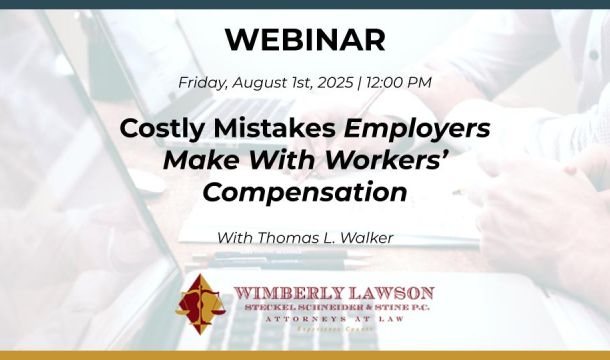OTHER CONCERNS ABOUT REFUSING TO HIRE OR DISCHARGING EMPLOYEES PRESENTING A NEW SOCIAL SECURITY NUMBER
In our March newsletter, we discussed a provision in the U.S. Citizenship and Immigration Services Handbook for Employers, Guidance for Completing Form I-9, which deals with a situation where an employee informs the employer that his or her identity is different from that previously used to complete Form I-9. The Guidance states that: "In that circumstance, you should complete a new Form I-9. Write their original hire day in Section 2, and attach the new Form I-9 to the previously completed Form I-9 and include a written explanation. In cases where employee has worked for you using a false identity but is currently work-authorized, the I-9 rules do not require termination of employment. . . ." This provision was cited in a technical assistance letter issued on January 8, 2015, by the U.S. Department of Justice’s Office of Special Counsel for Immigration-Related Unfair Employment Practices (OSC), which explained an employer’s responsibilities in this situation. It indicates that there is no violation when an employer consistently accepts documents that employees choose to present that reasonably appear to be genuine and relate to the individual, regardless of whether an employee admits that the documents previously presented for employment eligibility verification were "not real."
While many employers have consistently terminated employees who falsify their names and/or Social Security numbers, on the basis that they have violated a company policy against falsification of information, the provisions cited above have caused some employers to pause. Of concern is whether such an employer has consistently followed a policy of terminating all employees who are determined to have provided false information, particularly since it appears common for employees to present documents that are falsified in some manner.
A new case creates additional employer concerns when it terminates or refuses to hire an employee who has previously used a false name or Social Security Number, but now presents documents that reasonably appear to be genuine and relate to the individual. Guerrero v. California Department of Corrections and Rehabilitation, 127 FEP Cases 1478 (N.D. Cal. September 28, 2015). In this case, the employer disqualified job applicants who admitted to having used Social Security Numbers other than the one used on the application. A federal judge in California found that disqualification for such reasons had a statistically significant disparate impact on Latinos, putting the burden of proof on the defendant employer to prove that its use of the question was a business necessity. The court applied the new EEOC Enforcement Guidance on the Consideration of Arrests and Criminal Conviction Records, and applied the EEOC factors (recency, relevancy and severity) in determining that the employer violated Title VII by failing to apply such guidelines in the case of a previous falsified Social Security number.
Editor’s Note: Thus, in light of the developments in the Technical Assistance Letter issued January 8, 2015 by the OSC, the recent Guerrero case, and the possibility that the employer could be accused of inconsistently applying its work rules prohibiting falsification of company records, many employers may choose to think twice before immediately terminating employees coming forward with new names or Social Security numbers.
Related Content
Get Email Updates
Recent Content

How to Audit Employment Discrimination Laws Compliance

TPS Update (As of 6/17/2025)

TPS Designation for Honduras and Nicaragua Automatically Extended, But the Date is Uncertain

President Trump Discourages Criminal Enforcement of Agency Rules

Supreme Court Suggests Trump Can Fire Agency Heads without Cause

